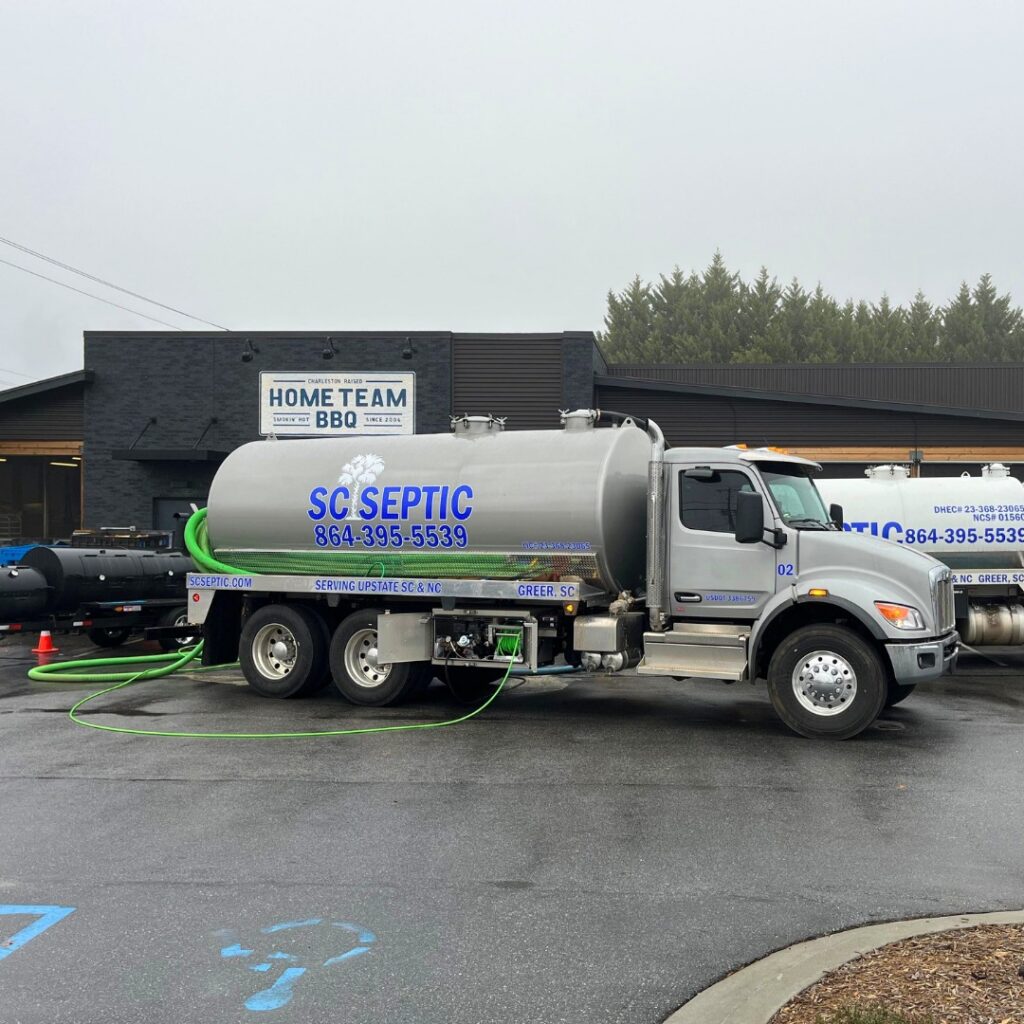Grease Trap Cleaning
- Home
- Grease Trap Cleaning
Our Services
- Perc Testing
Get Your Free Quote

Grease Trap Cleaning for Restaurants & Commercial Kitchens in Upstate SC & NC
Keep your business running smoothly with expert grease trap cleaning. Avoid costly fines and inspections with regular grease trap maintenance from SC Septic. Grease traps are essential for managing waste in commercial kitchens. SC Septic offers expert grease trap cleaning for restaurants and commercial kitchens to ensure your system functions without issues.
Why Grease Trap Cleaning Is Essential
Regular grease trap cleaning is essential for maintaining an efficient and compliant commercial kitchen or food service establishment. Over time, grease, fats, and oils build up in your grease trap, leading to blockages, foul odors, and even potential health code violations. By scheduling routine grease trap maintenance, you not only prevent these issues but also extend the life of your plumbing system and avoid costly emergency repairs.
Our Grease Trap Cleaning Process
You should have your grease interceptor number and size on hand for proper maintenance—but if you don’t, no worries, we can help you figure it out.
We remove grease buildup, dispose of waste, and perform system checks to keep your grease trap in top working condition. Our thorough cleaning process ensures that your trap operates efficiently and effectively, helping you avoid unnecessary repairs and maintain optimal performance.
Benefits of Regular Cleaning
Reduce plumbing issues, ensure kitchen safety, and stay compliant with local regulations with regular grease trap cleaning.
Failing to clean your grease trap regularly can result in backups that disrupt daily operations, attract pests, and cause unpleasant smells that drive customers away. More importantly, neglecting grease trap cleaning can put you at risk of hefty fines from local health departments and municipal wastewater authorities.
Staying on top of your grease trap cleaning schedule ensures compliance with local grease management regulations, protects your business reputation, and supports the overall hygiene of your facility. Whether you run a restaurant, café, or commercial kitchen, investing in professional grease trap services is a smart and necessary step to keep your operations running smoothly and your plumbing systems functioning efficiently.
Ask About Our Maintenance Plans
Reduce plumbing issues, ensure kitchen safety, and stay compliant with local regulations with regular grease trap cleaning. Grease traps should be cleaned every 90 days to stay compliant and avoid costly issues. We offer convenient maintenance plans that lock in your pricing and take the guesswork out of scheduling. Ask us about how to get started!
Ready to ensure your grease trap stays clear and complies with regulations?
Contact SC Septic for professional grease trap cleaning today!

